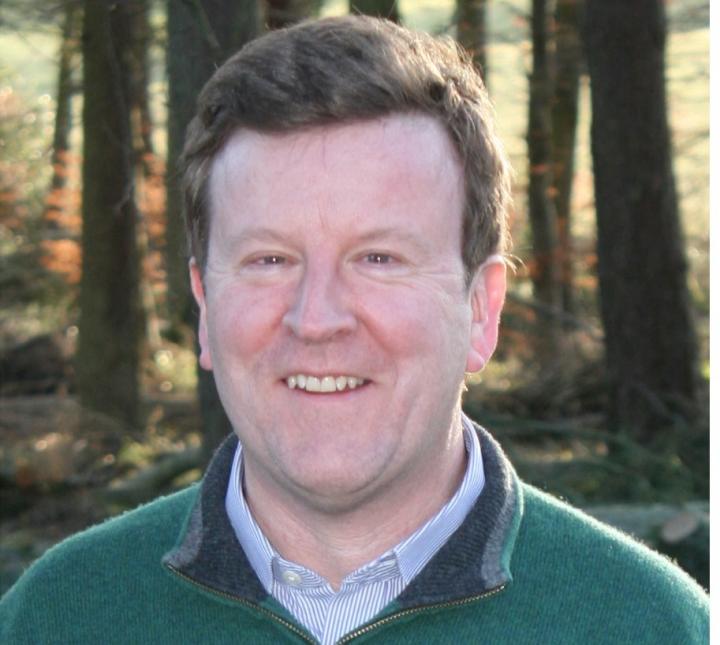Bio-based Manufacturing in Space
Can biology help us build towards a sustainable future for humans in space.
Mankind is looking outwards to secure a permanent human presence beyond our planet. However, to successfully do this, we will need to produce many things to sustain life in harsh and hostile environments. One solution is bio-based – to use microorganisms and other biological systems to secure the oxygen, chemicals, minerals, metals and materials needed to sustain life.

Vision
We aim to explore how biological systems might respond to the harsh environments of space then use these insights to engineer living systems to help us build an equitable and sustainable future for humans on planet earth today and, tomorrow, on new and distant planets.
Expertise
Edinburgh has a broad and deep range of expertise in the many disciplines that will be needed to create solutions for life in space. We have research groups active in engineering biology, biomining, biology in extreme environments, robotics and automation, novel chemistries, materials design, and plant science. This is all underpinned by best practice in responsible research and innovation supported by world class social sciences with strengths in emerging technologies.
A few examples of ongoing research with potential space applications include:
- The UK Centre for Astrobiology is an interdisciplinary research centre established in 2011 at the University of Edinburgh. It studies life in extremes and investigating the conditions that give rise to habitable environments for life on the Earth and potentially beyond.
- Edinburgh hosts the Centre for Science at Extreme Conditions, which has enhanced facilities for sample preparation and characterisation in extreme conditions.
- Space bio-mining: The work of Prof Charles Cockell demonstrated the potential for biomining in space. Prof Louise Horsfall is working on identifying and engineering microbes to accumulate rare metals from contaminated soils.
- The Space Microbiology Group, led by Dr Rosa Santomartino, studies how microorganisms behave in space conditions at the UK Centre for Astrobiology. Their aim is to use tools such as microbiology, molecular biology, system biology and geomicrobiology to learn how new biotechnologies could be applied to space, in order to support sustainable space exploration, and how these could inform terrestrial technologies to solve key environmental issues on Earth. They are particularly interested in understanding how to use microbes to support in situ resource utilization (ISRU), bioregenerative life support systems (BLSS) and waste upcycling in space.
- Novel chemistries: Dr Stephen Wallace is using a combination of engineered biology and organic chemistry to create completely novel metabolic pathways that cannot be done by either strategy alone. His work has enabled the production of starter molecules for Nylon from by-products of the paper industry.
- The School of Chemistry has a wealth of research in organic and inorganic chemistries and novel biocatalysts that could be deployed in harsh environments.
- Artificial photosynthesis: Plants can harvest light into food and fuel but plant photosynthesis is not an effective process. Dr Alistair McCormick is studying algae to learn how they optimize photosynthesis – potentially to generate synthetic systems.
Case Study
Biomining in space

Work to understand how microorganisms can be used to extract economically useful elements from extraterrestrial materials such as lunar and Martian rocks.
On Earth, biomining is used to extract copper and gold from rocks and is a well-established method of mining which helps reduce power and energy cost, as well as mitigating environmental pollution.
This work started as a collaboration between the Centre for Astrobiology (Charles Cockell), the German Space Agency (DLR) and others to test biomining from basalt, a common rock on the Moon and Mars under microgravity and artificial Mars gravity, onboard the International Space Station. The experiment (BioRock) flew in 2019 as a European Space Agency (ESA) and UK Space Agency (UKSA) experiment supported by STFC. It was followed up by BioAsteroid which studied metal extraction from asteroidal material in microgravity to as a test of asteroid mining.
The experiments used bacteria (e.g. Sphingomonas) and fungi (Penicillium) and demonstrated for the first time biomining in space, specifically, the mining of rare earth elements from these rocks. The work also explored fundamental scientific hypotheses on microbial growth and biofilm formation under microgravity and Martian gravity.
The work sits within the wider interest in using biological systems to carry out manufacturing beyond Earth and the processing of local resources (regolith and atmospheric components) to produce useful products, so called ‘in-situ resource utilisation’ (ISRU).
Contact
Prof Charles Cockell
Professor of Astrobiology
Contact details
- Work: +44 131 650 2961
- Email: ccockell@ed.ac.uk
Address
- Street
Room 1502,
Physics and Astronomy,
James Clerk Maxwell Building,
University of Edinburgh- City
- Edinburgh
- Post Code
- EH9 3FD

